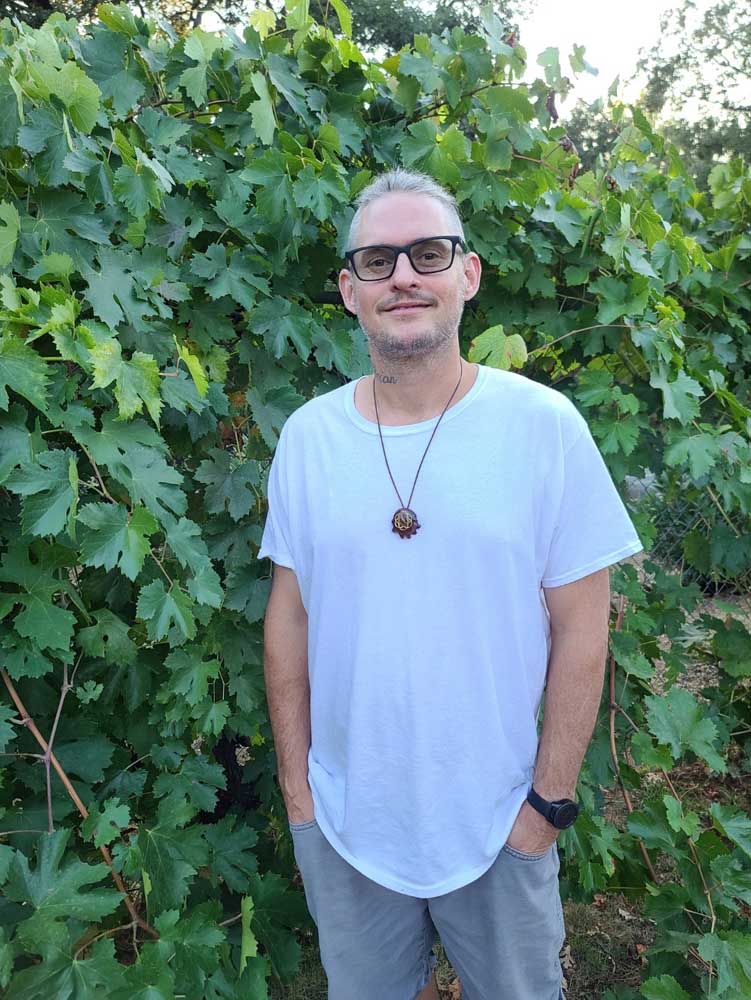Deschutes County drug court ends next week. Where will participants go now?
Published 5:45 am Friday, October 6, 2023

- Olen Grimes credits Deschutes County Circuit Court's drug treatment court program with helping him overcome substance abuse and changing his life.
Marc Stephens found rock bottom when Bend Police caught him stashing drugs in his car and chased him across town.
He woke up in the Deschutes County jail on his birthday.
Trending
Samantha Jones found similar despair after she sold her mother’s television for drug money. She nearly lost her children to foster care.
Olen Grimes could have lost his son, too, after police arrested him on Christmas Eve on suspicion of delivering methamphetamine. His son was in the car with him.
Each was caught in the throes of addiction but had their lives changed by one thing — Deschutes County Circuit Court’s drug treatment court program.
Over the years, the program helped hundreds of people with substance use disorders find employment and housing, learn parenting skills and receive treatment, rather than have their cases immediately tried in court.
Starting next week, however, it’s coming to an end. The program’s final two participants will graduate at 2 p.m. on Monday, the result of staffing woes and the loss of a coordinator and the program’s previous treatment provider.
As the county faces growing challenges around addiction, mental illness and the influx of fentanyl, legal experts say the loss of the program could result in a costly cycle: Fewer people receiving treatment. More going to prison.
Trending
“The ending of the drug court program couldn’t come at a worse time,” said Deschutes County District Attorney Steve Gunnels, who has been involved in the program for more than 20 years. “We’re experiencing a great deal of drug crime, drug addiction and overdoses. I know that the drug court program has saved people’s lives and taken them out of that lifestyle.”
The alternative for people who would otherwise receive help through drug court? According to legal experts: probation or prison.
“It sucks, because I know that it helps people,” said Stephens. “It gave me another chance. With that program, I beat the odds,” he added.
Local officials and participants say the program changed lives, by helping people reunite with their kids, resolve custody disputes and holding them accountable if they relapsed.
Since July 2021, half of the program’s 30 participants completed the program, according to Angie Curtis, trial court administrator for the Deschutes County Circuit Court.
And for those who improved, many stayed that way, officials said. Stephens, Jones and Grimes are good examples.
Stephens, a 47-year-old union carpenter who works at the Facebook data center near Prineville, mended his relationship with his family, bought a house and even mentored other addicts.
Jones, a 32-year-old stay-at-home mother of three, is six years sober, and her mom trusts her with the key to the house.
Grimes, a 46-year-old caseworker with BestCare Treatment Services, which helps people coping with addiction across the region, travels across Deschutes County, encouraging people to seek treatment.
Nicolas F. Patterson, a Bend-based defense attorney, represents one of the final two participants.
Over the past two years, Patterson has had about 10 clients go through the program, all of whom graduated, he said. They faced charges for possessing or delivering drugs, but also for driving or property crimes.
“It gave them a lot more to lose if they did relapse,” he said.
Now Patterson’s concerned that clients like these — many of whom lack the necessary life skills to overcome their addictions — will only struggle more as they go to prison and are released without the housing and skills needed to support themselves, stay sober and out of trouble.
Of drug court, he said: “It was doing more than the criminal justice system usually does.”
Officials and participants hope that the program is one day revived. As policymakers debate how best to revamp Measure 110 — which decriminalized drugs and emphasized allocating funding toward treatment efforts — officials say the time is right to support programs like drug court.
Officials praised drug court as having the proper support systems and accountability that were lacking when Oregon made most minor drug possession a civil infraction.
“It is exactly the kind of program that we need to realize the benefits … of Measure 110,” said Deschutes County Commissioner Phil Chang, who said county officials are seeking to kick-start a program similar to drug court.
Gunnels said he’s “hopeful that in the near future that we can locate a coordinator and a treatment provider to get the program up and running again.”
However, he added: “The big concern is that people who would otherwise be successful may not have that opportunity now.”







